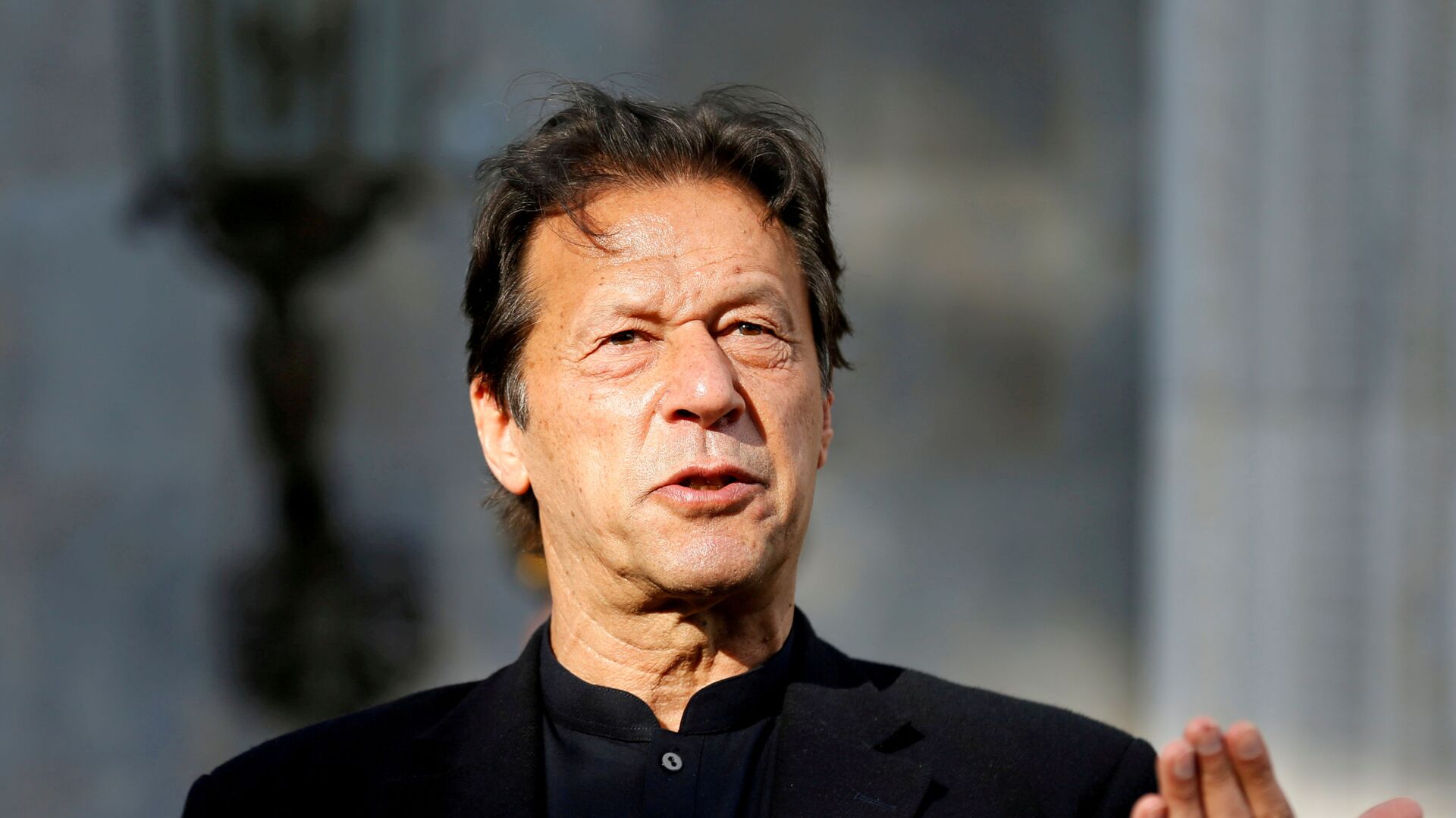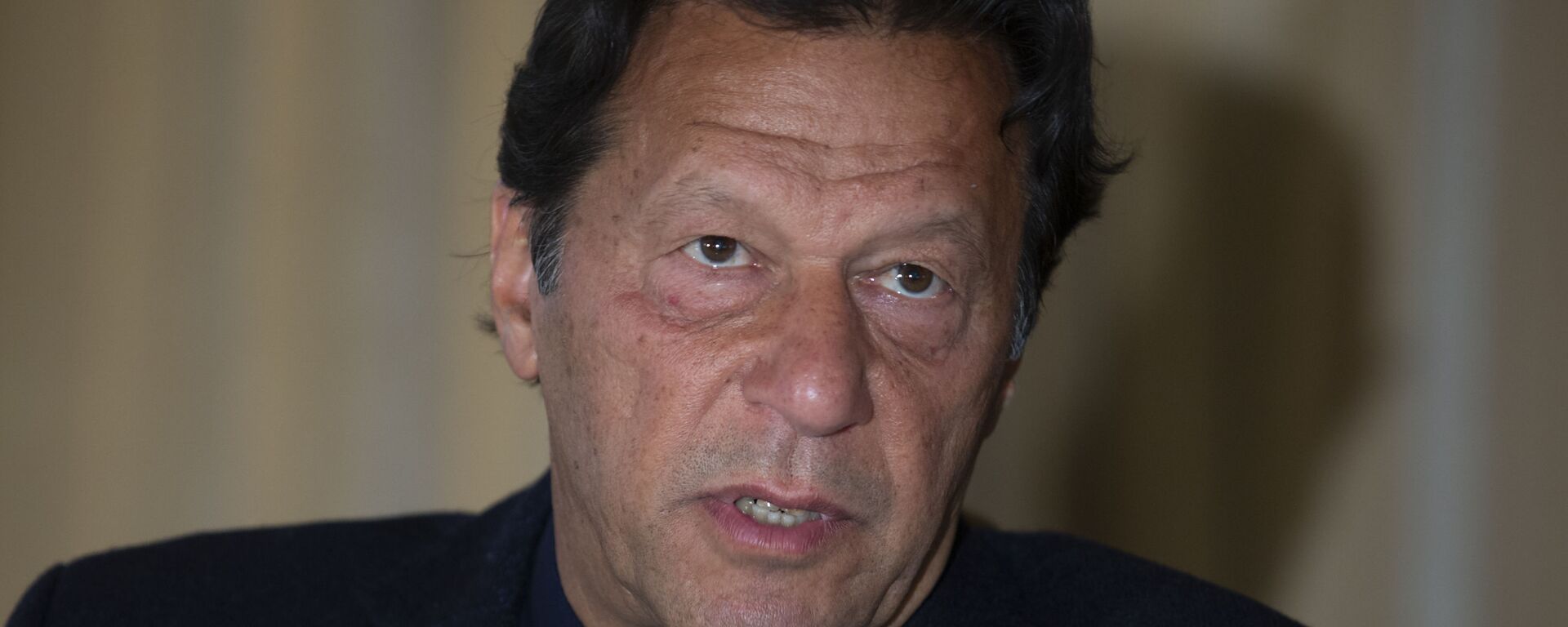Pakistan's Prime Minister Imran Khan has revealed that his country has been under pressure from the US and other Western powers over its relationship with China but Islamabad will not yield to demands to reconsider its "deep ties" with Beijing.
In an interview with the China Global Television Network (CGTN), Prime Minister Khan talked about the rivalry between China and the United States and its impact on Pakistan.
"There is a strange great power rivalry taking place in the region. You see the United States being wary of China. The way China and the US are looking at each other creates problems because what the United States is doing is it's formed this regional alliance called the Quad, which is US, India, and a couple of other countries. From this point of view, Pakistan thinks that it is very unfair for the US or Western powers for countries like us to take sides. Why should we have to take sides? We should have good relationships with everyone", he stated.
The Quad consists of the US, India, Australia, and Japan and has been formed to uphold "a rules-based international order" in the Indo-Pacific amid growing Chinese "assertiveness" in the region.
"The idea that India is supposed to lean to the Western world to counterbalance China is going to be very detrimental for India", Khan told the Global Times during an online press conference on Tuesday.
He said that China is too strong, and India will benefit from trade with China, which is much more advantageous than acting as a sort of counterbalance. Khan added that if any country were to lose out, it is going to be India.
"If pressure is put on Pakistan to change its relationship with China or downgrade its relationship - it's not going to happen because our relationship is very deep", he said, adding, "No matter how much pressure is put on us, the Pakistan-China relationship will not change".
Referring to the $60 billion China-Pakistan Economic Corridor (CPEC) as "the biggest thing happening in Pakistan" Khan said, "For us, this is where we think our economic future is moving towards".
The CPEC, which connects the Gwadar Port in Pakistan's Balochistan Province with China's Xinjiang Province, is the flagship project of Beijing's ambitious multi-billion dollar Belt and Road Initiative (BRI).
He said that China "always stood with us" whenever Pakistan "was in trouble politically, internationally, or in a conflict with a neighbour".
"In good times everyone stands with you but in your difficult time you remember those people who stood by you. That is why you will find that in Pakistan, people always have a special fondness for people in China", Khan stated.
Imran Khan has recently come under heightened scrutiny from the mainstream media after he accused the West of hypocrisy, saying that they ignore the plight of the people of Kashmir, while making such a "big issue" out of the alleged mistreatment of Uyghur Muslims reportedly lodged at so-called "re-education" camps in China's Xinjiang Autonomous Region.
"How come this is such a big issue to the Western world. Why are the people of Kashmir ignored? It is much more relevant. Compared to what might be going [on] with the Uyghurs, 100,000 Kashmiris have been killed. There are 800,000 Indian troops… Literally, it is an open prison in Kashmir. Nine million Kashmiris are put there. Why is that not an issue? I think it is hypocrisy", the Pakistani prime minister said in an interview with Axios last week.
The Pakistani prime minister refused to criticise China over its alleged abuses in the Xinjiang region, stating that Islamabad discusses all issues with Beijing "behind closed doors".
"China has been one of the greatest friends to us in our most difficult times. When we were really struggling, our economy was struggling, China came to our rescue. So, we respect the way they are and whatever issues we have, we speak behind closed doors", Khan added.




